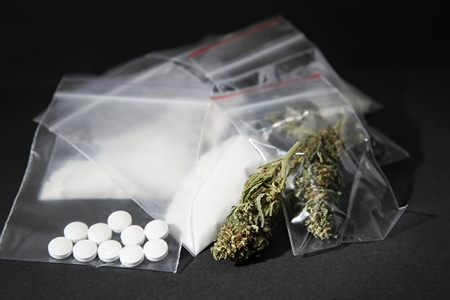Multiple DUI Penalties
Under South Carolina DUI law, it is illegal for a person to drive if they:
- have a blood alcohol content (BAC) of .08% or greater (.04% or more if
the driver was operating a commercial vehicle); - are “under the influence” of any drug or intoxicant; or
- are “under the influence” of alcohol.
Note that “under the influence” means being impaired to an extent that the person’s faculties to drive a motor vehicle are materially and appreciably impaired.
The penalties upon conviction can range from jail time to fines to license suspension, depending on the number of prior DUIs within the last 10 years and the defendant’s specific BAC.
The specific sentencing for first and subsequent DUI offenses are:
- 1st offense: 48 hours to 1 year in jail; $400-$1,000 in fines
- 2nd offense: 5 days to 3 years in jail; $2,000-$6,500 in fines
- 3rd offense: 60 days to 5 years in jail; $3,800 to $10,000 in fines
Every convicted individual is also required to enroll in the Alcohol and Drug Safety Action Program.
To learn more about the penalties for multiple DUIs in South Carolina, visit our “Multiple DUI” page.
Felony DUI Laws
A felony DUI occurs when a person drives a motor vehicle while impaired under the influence of alcohol and causes great bodily injury or death to another.A driver can be arrested for felony DUI when an officer determines there is probable cause that they:
- were driving a motor vehicle;
- were under the influence of alcohol or
drugs; - violated a traffic law; and
- this driving and impairment was the proximate cause of the serious bodily
injury or death of another.
Note that “great bodily injury” is defined as bodily injury which is life threatening, causes permanent disfigurement, or results in the loss or impairment of the function of any bodily function or organ.
An individual convicted of DUI causing great bodily injury could face a mandatory fine of $5,100-$10,100 and imprisonment for 30 days to 15 years, as well as ignition interlock device (IID) use for 3 years. If death occurs as a result of their DUI, the defendant will face a mandatory fine of $10,100 to $25,100 and 1-25 years in jail, as well as IID use for 5 years.
If the acts of a driver prosecuted for felony DUI cause serious bodily injury or death to more than one person, a court may sentence the driver on each count of felony DUI for each person who is injured or dies. A court can order these multiple counts of conviction to run either concurrently or consecutively, where concurrent sentences are served at the same time and consecutive sentences run in sequence.
Visit our page on Felony DUI to learn more specifics about such a charge.
Underage DUI
The illegal BAC threshold for a driver to be convicted of a standard DUI is .08%, but drivers under the age of 21 can be charged with underage DUI for having a BAC of .02% or above. A driver convicted of underage DUI will face a license suspension for 3 months, which can increase to 6 months if it is a second offense. If the individual refused chemical testing, their license will be suspended for 6 months upon a first offense and 1 year upon a second offense. Every convicted driver must also enroll in the Alcohol and Drug Safety Action Program.
Note that while standard DUIs are handled in criminal court, underage DUIs are handled administratively through the Department of Motor Vehicles (DMV). An underage DUI case likely will not involve a judge or trial and will not result in a criminal conviction, though any objection to the administrative action must be filed within 30 days.

















![avvo-5-star[2] Reviews Avvo](https://www.sc-dui.com/wp-content/uploads/2022/05/avvo-5-star2.png)
![avvo-clients-choice[1] Avvo clients choice Award 2019](https://www.sc-dui.com/wp-content/uploads/2022/05/avvo-clients-choice1.png)
![avvo-10[1] Avvo Rating award](https://www.sc-dui.com/wp-content/uploads/2022/05/avvo-101.png)
![rising-stars[1] Rising Stars](https://www.sc-dui.com/wp-content/uploads/2022/05/rising-stars1.png)


![ncdd_badge[1] National college for DUI defense](https://www.sc-dui.com/wp-content/uploads/2022/05/ncdd_badge1.png)
![SCAJ[1] South Carolina Association for justice](https://www.sc-dui.com/wp-content/uploads/2022/05/SCAJ1.png)
![SCBAR[2] South Carolina Bar](https://www.sc-dui.com/wp-content/uploads/2022/05/SCBAR2.png)
![super-lawyers[2] Super Lawyers](https://www.sc-dui.com/wp-content/uploads/2022/05/super-lawyers2.png)
